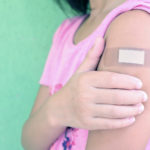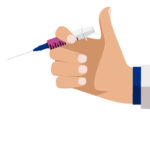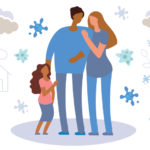‘Feeling empowered’: How vaccination helped me care for my family when one son got COVID-19
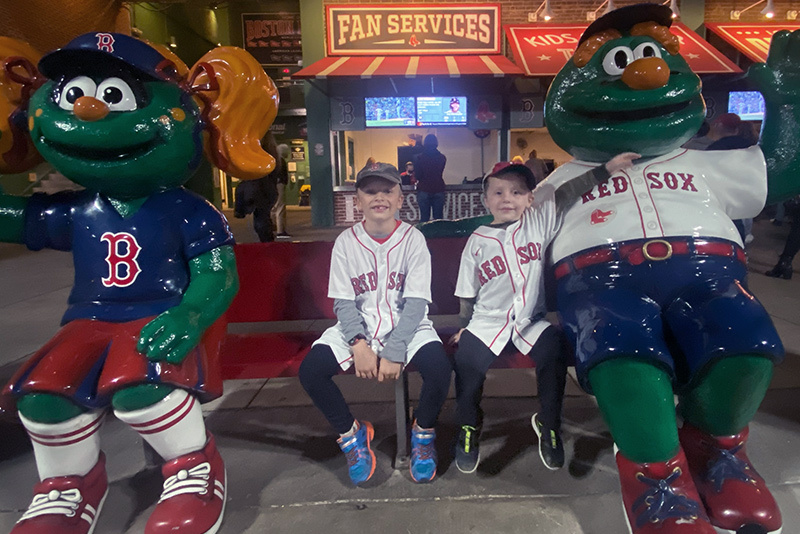
In mid-November, I awoke to an email from my children’s school stating that my second grader, Kyle, had been a close contact of someone who tested positive for COVID-19. I wasn’t overly concerned. While this was the first “close contact” email we had received, we had previously been notified that both our children were in the same room as a staff member who tested positive. Nothing came of that. But I had a small stash of rapid test kits at home, so I tested Kyle after breakfast, just to be safe.
Imagine my surprise when that rapid test came back positive — a mere three hours before he was scheduled to receive his first dose of the Pfizer vaccine.
Although my husband, our 3-year-old, Tyler, and I all tested negative, we needed a plan for our family. The plan for Kyle was relatively straightforward: He had to isolate at home for 10 days. The plan for Tyler was less clear cut. A household exposure would require eight days of quarantine, even if he continued to test negative. This meant the possibility of having one or both kids at home for nearly three weeks, an almost impossible scenario to contemplate for two full-time working parents.
The school nurse felt that if we were able to keep the boys apart from one another, Tyler’s quarantine could also begin that day and keep us from what felt like an endless slog of quarantine and isolation. We jumped on this idea and began to isolate the boys from another immediately.
This was made easier by several factors:
- We were able to move Kyle out of the boys’ shared bedroom into in a guest room. He could eat all his meals and snacks in that room and once we put a television in it and the dog joined him, he actually didn’t seem to want to leave.
- Kyle never felt sick. While I missed having him around the rest of the house with us, I knew that he wasn’t alone and suffering in that guest room.
- Kyle was excellent about understanding and following the rules we set. He wore a mask every time he ventured out of that guest room and shouted “SIX FEET” whenever his brother ran towards him.
But the one factor that truly allowed our family to get through this challenge relatively quickly was vaccination. My husband and I were both fully vaccinated earlier in the year and had recently received boosters. This meant I was able to go back and forth between the room where Kyle was spending his time — bringing him meals, hanging out with him, and watching his increasing proficiency at video games — and the rest of the house, where Tyler was spending his days. While I washed my hands until they were dry and cracked, I knew that it was unlikely that I would be carrying COVID-19 back to Tyler.
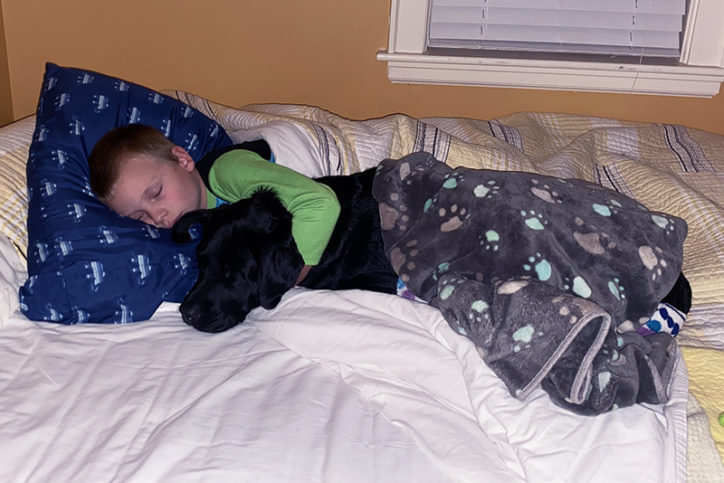
Simply put, vaccination is what made it possible for me to take care of my family without getting sick myself or spreading the infection to my younger child.
Like most parents, I had heard that the best way to protect a child too young for vaccination was to get vaccinated myself. But at the time, I was only thinking about how it would prevent me from carrying COVID into the household from outside. Until we were faced with the diagnosis of one child with this potentially life-altering virus, I had not considered how our vaccinated status as parents would allow us to take care of our children.
Today, Kyle is doing well and both kids are back in school. It appears that we successfully contained the virus and it did not spread to anyone else in the household. I’m thrilled that Kyle will be able to receive his vaccine very soon. While I hope that our family is done with COVID-19, I know that the virus is likely to be part of our society for a long time. But even as new variants emerge and COVID-19 remains part of life, I feel much more empowered knowing that we have vaccines in our corner.
Amy DeLong is the director of federal and external relations in the Office of Government Relations at Boston Children’s Hospital.
Get more answers about COVID-19.
Related Posts :
-

COVID vaccines are here for kids ages 5 to 11. Here’s what families should know.
On November 2, 2021, the U.S. Centers for Disease Control and Prevention (CDC) signed off on the use of the Pfizer-BioNTech ...
-

Answers to your questions about the COVID-19 vaccine
Update: On May 10, 2021, the U.S. Food and Drug Administration (FDA) granted emergency authorization for use of the Pfizer vaccine ...
-

COVID-19 vaccines: Do you know myth from fact?
Two COVID-19 vaccines — from Pfizer/BioNTtech and Moderna — have received emergency use authorization in the United States by the ...
-

Covid variants 101: What parents should know
First came Alpha, then Beta. It’s all about Delta right now, but Mu is already making headlines. You almost ...


